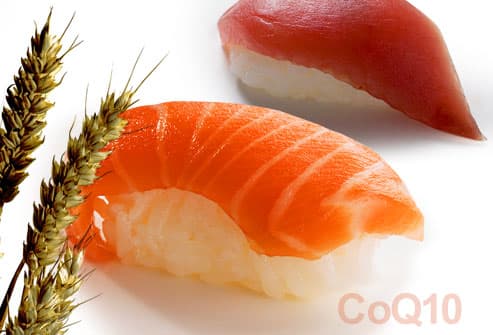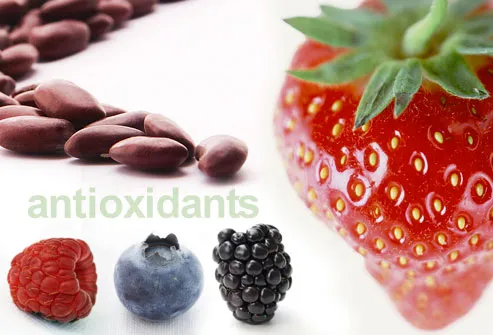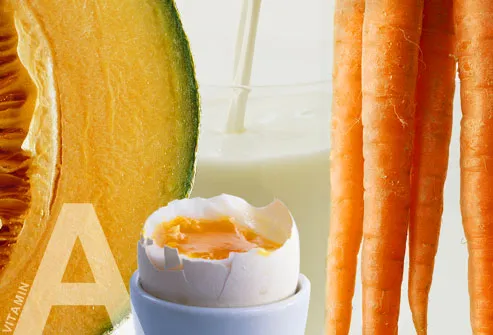How Water Benefits Your Skin
Few things are as good as water for keeping your skin in shape. Water keeps skin hydrated, reducing the look of fine lines and wrinkles. It helps cells take up nutrients and purge toxins. And water improves circulation and blood flow, keeping your skin glowing.
The Institute of Medicine recommends nine to 12 8-ounce glasses of water a day.

Selenium for Your Skin
Selenium is a trace mineral that may help protect skin cells from free radical damage. It may also play a role in skin cancer prevention.
Excellent sources of selenium include Brazil nuts, button mushrooms, shrimp, lamb, and fish such as snapper, cod, halibut, tuna, and salmon. Selenium is also found in cooked beef, light turkey meat, oysters, sardines, crab, and whole-wheat pasta.

CoQ10: Coenzyme Q10
CoQ10 is a powerful antioxidant made naturally in your body. However, its production decreases with aging. CoQ10 protects skin and other body cells from the damage caused by free radicals. It's also involved in energy production and basic functioning of cells. Low levels of this antioxidant are found in many age-related illnesses. When used topically, it is reported to improve the appearance of wrinkles and the signs of aging.
Rich sources of CoQ10 include fish (such as salmon and tuna), poultry, organ meats (such as liver), and whole grains.

Antioxidants for Healthy Cells
Antioxidants prevent or slow the damage done to cells by free radicals. This damage contributes to signs of aging, such as wrinkles and dry skin.
Antioxidants can be found in all kinds of foods, especially colorful fruits and vegetables such as berries, tomatoes, apricots, beets, squash, spinach, sweet potato, tangerines, peppers, and beans.

Vitamin A for Skin Repair
Want to steer clear of dry, flaky skin? Grab an orange, a carrot, or a slice of cantaloupe. These fruits and vegetables are loaded with vitamin A. Applying vitamin A to the skin appears to improve signs of aging, such as wrinkles. Topical and oral forms of vitamin A are common prescription treatments for acne and other skin conditions, including wrinkles. Other sources of vitamin A include leafy greens, eggs, and low-fat dairy.
Reviewed by Brunilda Nazario, MD on August 05, 2011
This tool does not provide medical advice.




No comments:
Post a Comment